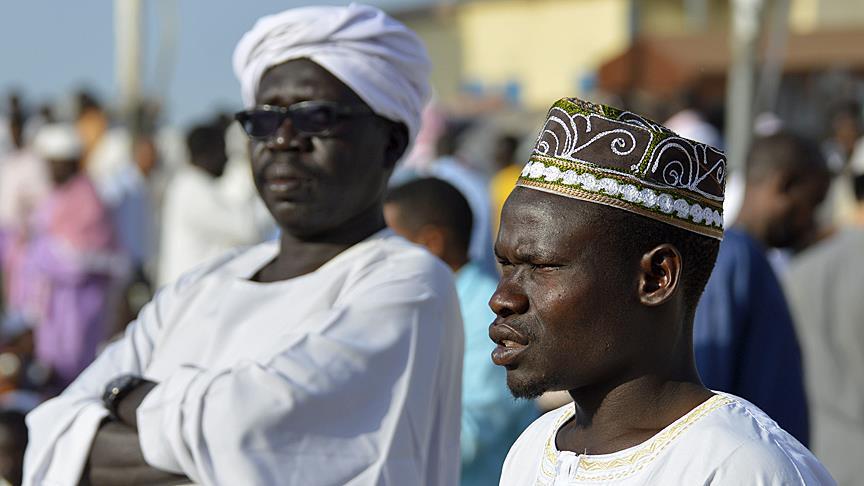South Sudan pins hope on national dialogue for peace
The ideal is representative committee bringing people together for dialogue to restore peace and stability, says activist

By Parach Mach
JUBA, South Sudan
The announcement earlier this month by South Sudan’s president of the start of a national dialogue in the war-torn country was a rare bit of good news amid the chaos that has so long prevailed there. However, it is still unclear how exactly this dialogue will work, say political analysts.
“Whether it will be the next hope to put the country on track again from its complex series of overlapping sectarian, political, and ethnic conflicts that are beyond the capacity of any one actor or policy to resolve, it remains to be seen,” Abraham Awolich of the Sudd Institute, a think-tank based in the capital Juba, told Anadolu Agency.
“A genuine national dialogue could be the best hope for South Sudan’s stability; its expectations are high. Could this exercise close the chapter of hatred and killings and open a new page? The resulting period remains to be seen and rewritten in the next three months,” Awolich said.
“The country needs something that will bring back peace and stability or else a longstanding conflict could result in extremism,” he explained. “Dialogue has been effectively used to bring peace and stability in many countries when it is well managed.”
Despite the uncertainty, some observers have expressed hope that South Sudan may yet emerge from the current crisis. Others, including peace partners, have vowed to provide financial support for the new government’s campaign against ethnic feuds that could lead to genocide.
Addressing parliament, President Salva Kiir announced a need for a national dialogue on Dec. 14, confessing publicly for the first time that he too, was worried about the direction the country is heading in. Kiir also asked the public for forgiveness.
Inclusiveness key
Bishop Enock Tombe, a representative of faith-based groups backing the August 2015 peace accord, said that for a national dialogue on peace and reconciliation to be effective, it must include women, faith-based groups, young people, NGOs, the government, opposition, and other groups.
All stakeholders should agree on the agenda for the dialogue, Tombe said.
“The ideal dialogue is that there should be a ‘representative of all’ committee that brings together people at the top, middle and bottom levels on the committee, and once we know the issues regarding conflict at the grassroots level then we can proceed to the national level to address them through dialogue that will restore peace and stability in the country,” he added.
For his part, Onyoti Adigo Nyikwec, chairman of South Sudan’s main opposition Democratic Change Party (DCP), agrees that the South Sudanese need to conduct an inclusive national dialogue that will address issues affecting the country and the people.
Such a national dialogue needs to be done in two phases, Nyikwec told the Juba Monitor, a local daily.
“The first phase should focus on uniting the internal front over the peace agreement and to address the issues on why implementation of the agreement is not moving forward and the second one that widely brings out the citizens in the country and those in the diaspora,” Nyikwec said.
“South Sudanese are suffering due to insecurity and economic hardships,” he added.
“It is high time that we conducted a national dialogue on peace and reconciliation that will provide citizens with the opportunity to dialogue with one another, to forgive and reconcile and also come up with tangible results that the international community will acknowledge that truly we are serious about peace and its implementation.”
He stressed that dialogue means “compromise, forgiveness and accepting one another and is stronger than any weapon.”
Hurdles to peace
South Sudan, the world’s youngest country, was plunged in civil war when a long-running political feud between Kiir and his sacked deputy Riek Machar exploded into violence, much of its along ethnic lines.
The rival leaders signed a shaky peace deal in August 2015. But fresh conflict broke up out this July, quickly spreading from the Presidential Palace to the rest of the city and forcing Machar out of the capital, Juba.
Despite Machar’s former chief negotiator Taban Deng Gai stepping up to replace him to implement the fragile peace agreement, conflict around the country has continued, ignoring the efforts of monitoring teams and the region to convince both sides to lay down their arms.
The collapsed economy has exacerbated the conflict, with the government saying it lacks the funds to implement the agreement.
It also remains unclear whether the opposition, still fighting the government, would even accept the deal. Machar, at his residence-in-exile in South Africa, has branded the exercise “bogus,” arguing that only a renegotiation of the peace agreement offers a way out.
Anadolu Agency website contains only a portion of the news stories offered to subscribers in the AA News Broadcasting System (HAS), and in summarized form. Please contact us for subscription options.







